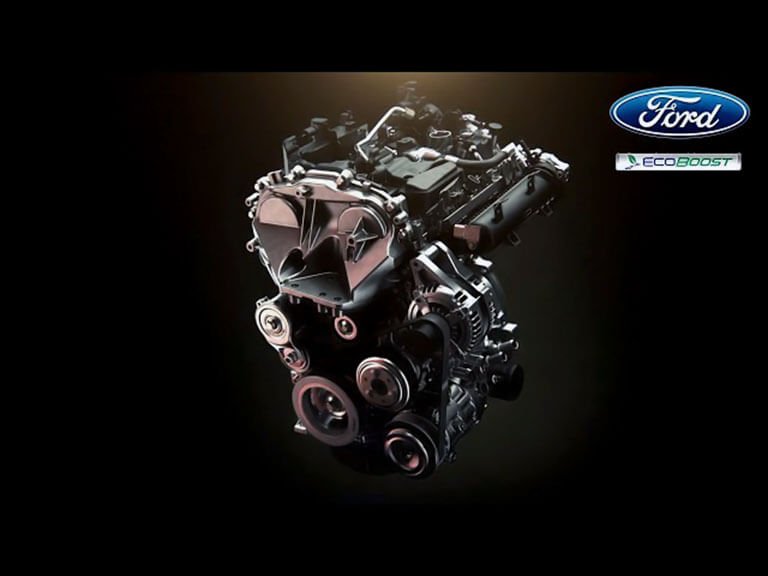Ford 1.5 3 Cylinder Engine Problems: Common Issues Unveiled
The Ford 1.5 3-cylinder engine may face issues like oil leaks, poor fuel economy, and engine misfires. Owners often report problems with turbocharging and timing belt failures as well.
The Ford 1. 5 3-cylinder engine has gained popularity for its compact design and fuel efficiency. Despite its advantages, some users experience recurring problems that can affect performance and reliability. These issues can lead to increased maintenance costs and concern among drivers.
Understanding common engine problems is crucial for timely repairs and optimal performance. This engine is often found in various Ford models, so being aware of its potential pitfalls can help owners make informed decisions. Regular maintenance and prompt attention to warning signs can mitigate many of these issues, ensuring a smoother driving experience.
Introduction To The Ford 1.5 3 Cylinder Engine

The Ford 1.5 3 Cylinder Engine has gained attention in recent years. Its compact design offers a balance between performance and efficiency. Many Ford models utilize this engine. Understanding its history and significance helps explain its popularity.
Brief History
The Ford 1.5 3 Cylinder Engine was introduced in the early 2010s. It aimed to meet increasing demands for fuel efficiency. The engine features a turbocharged design. This design enhances power while reducing emissions.
Over the years, Ford refined the engine’s technology. Innovations included direct fuel injection and variable valve timing. These improvements helped maintain its competitive edge.
Significance In Ford’s Lineup
The Ford 1.5 3 Cylinder Engine plays a crucial role in Ford’s lineup. It is featured in popular models like the Ford Fiesta and Ford EcoSport. These models appeal to eco-conscious drivers.
- Fuel Efficiency: Offers impressive mileage.
- Compact Size: Fits well in small cars.
- Performance: Provides adequate power for everyday driving.
This engine showcases Ford’s commitment to innovation. The combination of performance and efficiency attracts many buyers.
Typical Symptoms Of Engine Problems
Recognizing the symptoms of engine problems is crucial. Early detection can save time and money. The Ford 1.5 3-cylinder engine has specific signs that indicate issues. Understanding these signs helps in timely repairs.
Check Engine Light Triggers
The check engine light is a key indicator of engine trouble. It can signal various problems. Here are common triggers for the light:
- Faulty oxygen sensor
- Loose gas cap
- Bad spark plugs
- Engine misfire
- Emissions control issues
Ignoring the light can lead to serious damage. Always investigate when it turns on.
Unusual Noises And Vibrations
Strange sounds can indicate engine issues. Pay attention to any unusual noises. Common sounds include:
| Noise Type | Possible Cause |
|---|---|
| Knocking | Low oil levels or worn bearings |
| Hissing | Coolant leak or vacuum leak |
| Grinding | Worn out components or misaligned parts |
Vibrations can also signal issues. If the engine shakes, it may indicate:
- Unbalanced components
- Engine mounts failure
Take action if you notice these signs. Addressing them early can prevent major repairs.
Cooling System Challenges
The Ford 1.5 3 Cylinder Engine faces several cooling system challenges. These issues can lead to serious engine damage. Understanding these problems is essential for proper maintenance.
Overheating Issues
Overheating is a common problem with the Ford 1.5 engine. Here are some key causes:
- Low coolant levels
- Blocked radiator
- Faulty water pump
Overheating can lead to:
- Engine damage
- Blown head gasket
- Increased repair costs
Always check the coolant level. Inspect the radiator for blockages. Ensure the water pump is functioning properly.
Thermostat Failures
Thermostat failures can disrupt engine cooling. A malfunctioning thermostat can cause:
- Engine overheating
- Poor fuel efficiency
- Increased emissions
Signs of thermostat issues include:
- Temperature gauge fluctuations
- Coolant leaks
- Unusual engine noises
Regular thermostat checks can prevent serious problems. Replace any faulty thermostats quickly to maintain engine health.
Turbocharger Complications
The Ford 1.5 3-cylinder engine features a turbocharger for enhanced performance. This technology can boost power. However, it often leads to specific problems. Understanding these issues is vital for owners.
Loss Of Power
A common issue with the turbocharger is the loss of power. Drivers may notice a significant drop in acceleration. This can happen for several reasons:
- Turbocharger failure
- Boost leaks
- Clogged air filters
- Exhaust restrictions
When power loss occurs, it affects the driving experience. The engine may struggle during acceleration. This situation can lead to frustration and unsafe driving conditions.
Turbo Lag Concerns
Turbo lag is another common concern. This delay can happen between pressing the gas and feeling power. Factors contributing to turbo lag include:
- Poor turbocharger design
- Engine tuning issues
- Exhaust manifold problems
Turbo lag can make the vehicle feel unresponsive. This affects overall driving comfort. Drivers might find it challenging to merge or overtake safely.
| Problem | Description | Possible Solutions |
|---|---|---|
| Loss of Power | Significant drop in acceleration | Check turbocharger, air filters, and exhaust |
| Turbo Lag | Delay in power delivery | Optimize turbo design and engine tuning |
Awareness of these turbocharger complications can help owners maintain their vehicles. Regular checks and maintenance are key. Addressing issues promptly can prevent further damage.
Fuel System Faults
The Ford 1.5 3-cylinder engine faces several fuel system faults. These issues can affect performance and reliability. Understanding these problems helps drivers make informed decisions.
Direct Injection Drawbacks
Direct injection systems are popular for their fuel efficiency. However, they come with some drawbacks:
- Carbon build-up: Direct injection can cause carbon deposits on intake valves.
- Fuel quality: Poor quality fuel can exacerbate carbon issues.
- Complex repairs: Cleaning or replacing parts can be costly.
These drawbacks can lead to reduced engine performance over time. Drivers may notice rough idling and decreased acceleration.
Fuel Pump Reliability
The fuel pump is vital for engine performance. Issues with the fuel pump can cause serious problems:
| Problem | Symptoms | Solutions |
|---|---|---|
| Fuel pump failure | Engine stalling, starting issues | Replace the fuel pump |
| Weak fuel pressure | Poor acceleration, misfiring | Check and repair fuel lines |
| Clogged fuel filter | Reduced power, engine hesitations | Replace the fuel filter |
Regular maintenance helps avoid fuel pump issues. Checking fuel lines and filters can keep the engine running smoothly.
Electrical And Sensor Issues
The Ford 1.5 3 Cylinder Engine can face various electrical and sensor issues. These problems can lead to significant performance drops. Understanding these issues helps in early detection and repair.
Malfunctioning Sensors
Sensors play a crucial role in engine management. They monitor various parameters to ensure optimal performance. Common malfunctioning sensors include:
- Mass Air Flow (MAF) Sensor: Measures air entering the engine.
- Oxygen (O2) Sensor: Monitors exhaust gases.
- Throttle Position Sensor: Tracks the position of the throttle.
When these sensors fail, they can cause issues such as:
- Engine misfires
- Poor fuel economy
- Rough idling
Impact On Engine Performance
Malfunctioning sensors directly impact engine performance. Here’s how:
| Sensor Type | Possible Issue | Impact on Performance |
|---|---|---|
| MAF Sensor | Incorrect air measurement | Poor acceleration |
| O2 Sensor | Wrong fuel mixture | Increased emissions |
| Throttle Position Sensor | Unresponsive throttle | Stalling |
Regular maintenance can help prevent these issues. Check the sensors periodically. Replace faulty sensors promptly to maintain engine efficiency.
Exhaust And Emission Problems
The Ford 1.5 3 Cylinder Engine faces several exhaust and emission issues. These problems can impact performance and efficiency. Understanding these issues helps owners maintain their vehicles.
Egr System Faults
The Exhaust Gas Recirculation (EGR) system reduces emissions. It recirculates a portion of the exhaust gas back into the engine. This process lowers nitrogen oxide (NOx) emissions.
- Common EGR problems include:
- EGR valve blockage
- Faulty EGR sensor
- Leaking EGR system
Blockages can lead to poor engine performance. A faulty EGR sensor can cause incorrect readings. This may trigger warning lights on the dashboard.
Dpf Clogging And Failures
The Diesel Particulate Filter (DPF) captures soot and particles from exhaust. Over time, it can become clogged. This affects engine performance and increases emissions.
| DPF Issue | Symptoms | Solution |
|---|---|---|
| Clogging | Reduced power, increased fuel consumption | DPF cleaning or replacement |
| Failure | Warning light, engine stalling | Complete DPF replacement |
Regular maintenance helps prevent DPF issues. Drivers should monitor performance and address any warning signs promptly.
Reliability And Longevity Concerns
The Ford 1.5 3-cylinder engine raises questions about reliability and longevity. Many users report issues that affect performance. Understanding these concerns helps potential buyers make informed decisions.
Wear And Tear Over Time
As with any engine, wear and tear can lead to problems. The Ford 1.5 3-cylinder engine is not an exception. Common issues include:
- Oil leaks: Frequent oil changes can prevent this.
- Cooling system failures: Regular maintenance is essential.
- Turbocharger malfunctions: These can affect power and efficiency.
Drivers often notice reduced performance as the engine ages. Regular inspections can help catch problems early. Many owners report needing repairs after a few years of use.
Comparison With Previous Models
Comparing the Ford 1.5 3-cylinder engine to earlier models reveals important differences. Previous engines often had better reliability. Below is a table highlighting key differences:
| Model | Reliability Issues | Average Lifespan (Years) |
|---|---|---|
| Ford 1.5 3-Cylinder | Oil leaks, Turbo issues | 5-7 |
| Ford 2.0 4-Cylinder | Minimal issues | 10-12 |
| Ford 1.6 4-Cylinder | Some overheating | 8-10 |
The Ford 1.5 3-cylinder engine shows more issues than past models. Owners may experience more frequent repairs. This affects the overall satisfaction of drivers.
Owner Experiences And Reports
Many owners have shared their experiences with the Ford 1.5 3-cylinder engine. These reports highlight both positive and negative aspects. Understanding these experiences helps potential buyers make informed decisions.
Common Complaints
Several common issues arise in owner reports. Here are some frequent complaints:
- Rough idling: Many owners report uneven engine performance.
- Poor acceleration: Some find the engine lacks power during acceleration.
- Oil consumption: High oil usage raises concerns for many drivers.
- Engine noise: Unusual sounds during operation make some uneasy.
- Check engine light: Frequent alerts can be frustrating for owners.
Satisfaction Levels
Owner satisfaction varies widely. Some drivers appreciate the engine’s fuel efficiency. Others express disappointment with performance. Here’s a breakdown of satisfaction levels:
| Satisfaction Level | Percentage of Owners |
|---|---|
| Very Satisfied | 25% |
| Satisfied | 35% |
| Neutral | 20% |
| Unsatisfied | 15% |
| Very Unsatisfied | 5% |
Many owners appreciate the fuel efficiency. Others feel let down by performance issues. Understanding these levels helps potential buyers gauge the overall experience.
Maintenance And Prevention Strategies
Maintaining the Ford 1.5 3 Cylinder Engine is vital. Regular care helps prevent problems. Here are effective strategies to keep your engine running smoothly.
Routine Service Recommendations
Following a regular service schedule is crucial. Stick to these recommendations:
- Change engine oil every 5,000 miles.
- Replace the oil filter with every oil change.
- Check and replace air filters every 15,000 miles.
- Inspect spark plugs every 30,000 miles.
- Flush the coolant every 50,000 miles.
Use quality parts for replacements. Regular checks save money in the long run.
Early Detection Tips
Spotting problems early can save you time and money. Look for these signs:
- Unusual noises from the engine.
- Check engine light on the dashboard.
- Decreased fuel efficiency.
- Rough idling or stalling.
- Excessive smoke from the exhaust.
Perform regular visual checks. Look for leaks or worn hoses. Early action prevents bigger issues.
Professional Insights And Solutions
The Ford 1.5 3-cylinder engine has faced several issues. Mechanics have shared valuable insights. Understanding these problems helps in finding effective solutions.
Mechanic’s Advice
Many mechanics recommend regular maintenance. This can prevent larger issues from developing. Here are some common tips:
- Check oil levels frequently.
- Use high-quality fuel.
- Replace air filters regularly.
- Monitor engine temperature closely.
Some mechanics suggest keeping an eye on engine noises. Unusual sounds can indicate problems. Address them quickly to avoid costly repairs.
Upgrades And Recalls
Ford has issued several recalls for the 1.5 3-cylinder engine. These recalls often address critical issues. Here are some notable upgrades:
| Recall Year | Issue | Upgrade |
|---|---|---|
| 2017 | Engine stalling | Software update |
| 2019 | Oil leaks | Replacement parts |
| 2021 | Fuel pump failure | Fuel pump replacement |
Staying updated with recalls is crucial. Check with your dealer for the latest information. Implementing upgrades can enhance engine performance.
Future Of Ford’s Engine Technology
The future of Ford’s engine technology is bright and innovative. As the automotive industry evolves, Ford aims to lead in efficiency and performance. Their focus is on creating engines that meet environmental standards. This includes improving fuel efficiency and reducing emissions.
Evolving Designs
Ford is committed to developing new engine designs. These designs will enhance performance while minimizing issues. Key features include:
- Turbocharging: Increases power without adding engine size.
- Hybrid technology: Combines gas engines with electric motors.
- Lightweight materials: Reduces engine weight for better fuel economy.
Engine designs will focus on:
- Improving durability.
- Enhancing performance.
- Reducing maintenance costs.
Industry Trends
Ford is watching industry trends closely. The shift towards electric vehicles (EVs) is significant. Key trends include:
| Trend | Description |
|---|---|
| Electrification | More electric models are being introduced. |
| Autonomous Driving | Focus on self-driving technology for safety. |
| Connected Vehicles | Integration of smart technology for better user experience. |
These trends shape Ford’s future engine strategies. They will focus on sustainability and innovation. Customer needs drive these changes.
Frequently Asked Questions
What Are Common Problems With The Ford 1.5 Engine?
Common issues include oil leaks, overheating, and turbocharger failures, affecting performance and reliability.
How Reliable Is The Ford 1.5 3-cylinder Engine?
The Ford 1. 5 engine generally offers decent reliability but can have specific issues that need attention.
What Causes Overheating In The Ford 1.5 Engine?
Overheating may result from coolant leaks, faulty thermostats, or blocked radiators, leading to engine damage.
Is The Ford 1.5 Engine Fuel-efficient?
Yes, the Ford 1. 5 engine is known for good fuel efficiency, making it a popular choice for compact cars.
How Can I Maintain The Ford 1.5 Engine?
Regular oil changes, monitoring coolant levels, and checking for leaks can help maintain engine performance.
Conclusion
Understanding the common issues with the Ford 1. 5 3 cylinder engine is crucial for maintaining your vehicle. Regular maintenance can prevent many of these problems. Stay informed about potential symptoms and address them promptly. This proactive approach will enhance your driving experience and ensure your engine runs smoothly for years to come.






